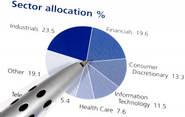-
About
- About Listly
- Community & Support
- Howto
- Chrome Extension
- Bookmarklet
- WordPress Plugin
- Listly Premium
- Privacy
- Terms
- DMCA Copyright
- © 2010-2025 Boomy Labs


 Jackson Middleton
Jackson Middleton
Listly by Jackson Middleton
Here is a list of the 120 best blog posts and news articles dealing with personal finance in Canada for 2013. Now, a couple American posts snuck onto the list, but they deal with the universal principals of money so we let it slide! Curated by Sandi Martin

Most people seem to have a single checking and a single savings account. My wife and I take it a bit further by putting our emergency fund in a separate online-only checking account, but family financial weblog The Fun, Cheap, or Free Queen suggests having no less than seven bank accounts for a family.

Getting organized is a key step in applying discipline to your financial and investment planning. Here is a checklist that shows suggested financial planning activities for the next year. January A good time to meet with your financial advisor to review and rebalance your investment portfolio.

The financial plan you're getting for free from the personal banker and the investment advisor isn't really a financial plan tailored to you at all, and it's free because the full priced products - through up front and annual trailing commissions - are huge profit engines for the people and companies who sell them.

Melissa Leong (aka Superwoman) explains just who needs to buy life and disability insurance

One of the last things we want to discuss when getting into a new relationship is money. Money is a topic most of us want to avoid anyway. Not many people can claim complete mastery over their own personal finances, and there's always the fear that someone may reject you if they find out about your debt load, credit history, spending habits, or other financial skeletons in your closet.

My job requires reading a lot of financial news. It's one of my favorite parts. But it gives me a front-row seat to the downside of financial journalism: gibberish, nonsense, garbage, and drivel. And let me tell you, there's a lot of it. Here are a few stupid things I hear a lot.

Many of us suffer from financial inertia because we can't seem to find the time or have a desire to deal with our money problems. We put off decisions that, with some careful planning and research, could save us hundreds of dollars per year.

Before the holiday, Matt Damon was quoted saying "the system is rigged." Immediately, I felt horrible. If the world is against this handsome, famous millionaire, what hope does a business hobbit like me have? It's not the first time I've heard this feel-bad, defeatist mantra.

They say a cynic knows the price of everything and the value of nothing. That's one up on most investors, who know neither. Sorry for the blunt talk, but we're at a pivotal moment in investing as we begin 2013.

It wasn't that long ago that retirement planning seemed a lot more straightforward: open a Registered Retirement Savings Plan (RRSP), choose your asset allocation, make contributions and-hopefully-watch your money grow. But the simple truth is RRSPs haven't always been right for everybody: they were just the most popular option for tax-sheltering some of your earnings.

As false assurances go, there's nothing like your bank telling you the house you've got your eye on is affordable. Maybe the mortgage you need will truly fit your budget. But you won't know for sure until you try my new measure of how balanced you are in terms of what you're saving and borrowing.

In my quest to critique everyone else's financial goals (an example here), I move now to the Big Cajun Man who recently tossed out a few financial resolutions. Here is a paraphrase of his list (you'll have to click through to his blog for the funny parts I left out): 1.

No matter what time of the year it is, one of the most popular questions I get is whether it makes sense to buy a RRSP? I remember coming out of University and my father telling me I should invest in RRSPs for retirement. When I asked him why, he simply said "It's a good investment."

January 30th, 2013 by Potato I posted yesterday about some bullish (or not-bullish but not-bearish) arguments on housing and why I think they're overlooking important factors. Michael James hosted an interesting discussion on his blog where he called me his favourite writer (well, not quite).

Capital gains are profits you earn through buying and selling capital assets. These include, but are not limited to, stocks, mutual funds and bonds. In the US, the IRS estimated that it was losing $11 billion per year in tax revenue by taxpayers misreporting their capital gains.

At first glance, it appears that Questrade is the best choice for an RRSP brokerage account for someone with a very small amount of money to invest who insists on having a self-directed account within which they can purchase stocks. Is it?

Fellow peasants, unite! The time has come to overthrow the old order! GRS rule #3 says, " Spend less than you earn." But why should we continue to do that always? Because of tradition? Because of authority? Because that's what everyone else claims they are doing?

Thanks financial industry. Thank you for muddying the waters. A man must admit when he has met his match, and I believe the boys with the yachts over on Wall Street and Bay Street have proven they will always be two steps ahead of the people trying to educate others on how to save a little of their nest egg for themselves.

I know a lot of you love it, but I think the hashtag #YOLO is kinda stupid. Okay, it's not that it's stupid, I just dislike how it's being used. Especially because people seem to be using it as an excuse to justify their excessive or unnecessary spending.

I am often asked by my readers in the comments section of my blog, if they should send in documents such as appraisals, invoices and interest expense statements to the Canada Revenue Agency ("CRA") to support a tax deduction, tax credit or cost base adjustment.

When most of us reach a certain point in our professional and personal finance journey, we start to experience lifestyle creep, the pressure to spend more. The causes could be social, financial or even boredom. After a certain minimum livelihood is met, each raise or goal accomplished allows us to potentially spend or save more.

The day was supposed to be perfect. I had the house to myself, my favorite coffee was brewing, and my brain was in a place where writing could be fun. Then it happened. I'm not exactly sure what "it" was, but my joy evaporated instantly when the behemoth that was my 17″ MacBook Pro went blip.

It's been barely a month since Alexander Green remarked that we're currently enjoying " the most disrespected bull market in history." Green described how investors who were shell-shocked by 2008 were still pulling money out of equities and taking shelter in fixed income and cash.

It used to be that this decision was made for you. Once you started receiving your CPP retirement pension, you could not make further contributions to the CPP. If you weren't receiving your CPP retirement pension, you had to continue making contributions until age 70.

I spent some time recently helping a low-income retired couple, the Wilsons, figure out what to do with their RRSPs now that they are on the verge of having to convert them into RRIFs. They know that because they collect the Guaranteed Income Supplement (GIS), the minimum RRIF withdrawals will reduce their GIS benefits.
